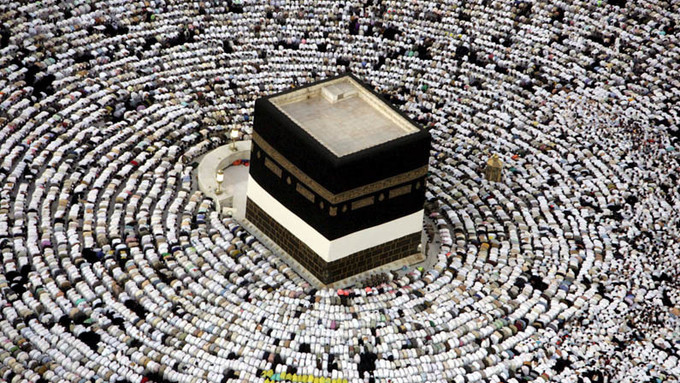Footprints: How Mentoring Shapes Knowledge
The Divine cares for us, gives us provision, and ultimately teaches each one of us what we did not know – So have consciousness of Allah; and Allah will teach you (2:282). It is through knowledge (ilm) that Allah makes each of us aware of themselves through the signs (ayat) in what the Divine has made manifest (dhahir) and hidden (batin). He sent as a Mercy to each of us the Prophet Muhammad, the best of His creation, with the last distillation of revelation that embarks to guide through Divine generosity those whom Allah has granted success, and lead astray through Divine justice those for whom it has been decreed. He eases the believers in both the worlds and opens their hearts to the Reminder. It is through the tongue of the Messenger that our own pronouncement in the belief in Divine Unity, with sincerity in our hearts and acting according to what the Messenger came down with, is verified. Each of us has the capacity to learn what “Allah will teach you” by keeping within the limits prescribed to us by his Messenger and experiencing felicity in compliance with Divine writ and will.
Both I and you are charged with taking care of what He has entrusted us with and in holding to His injunctions (Shari'a) and in treading upon the spiritual path (Tariqa). Today, there exists like no other time obfuscation on what Islam is in its reality. Heavy handed dogmatic legalism has mired the hearts of practitioners and objectors alike, and dulled the luminosity of the Prophetic path. Virtue and ethics have been sacrificed by claimants for a paltry price, driving many towards a crisis of questioning or possibly leaving their faith. Few seek, and yet fewer find a mentor that through mastery and gentle patience can take them by the hand and assist them not only in finding faith, but finding themselves. As the traditional saying (athar) states, “He who knows himself (nafsahu) knows his Lord”. The Quran bears this truth when it states those that accept God’s guidance will be guided “for themselves” (linafsihi), and that he who remains obstinate is so “on themselves” (`ala nafsishi) (Quran 17:14 & 4:104). Thus the personal obligation of the self (nafs) to “know that there is no reality, except the Divine Reality (Quran 47:19). Shaykh Khalil Al-Majdalawi (May God Preserve Him), was and is such a mentor for me.
Born in his namesake village near Safed, the Shaykh suffered through the Great Catastrophe (Al-Nakbah) and exodus from his native homeland of Palestine as a young man in 1948. He persevered in his studies at Al-Imam Al-Awzai University in Lebanon with a focus on Quranic and spiritual sciences (Tazkiya) and a zeal for spreading religious truths (Dawa), eventually earning a doctorate. As an academic, the Shaykh held various positions and held departmental chairs within the College of Islamic Law (Kulliyat Al-Sharia) and Missionary Call (Usul Al-Dawa). The Shaykh embodied a strong belief in the efficacy of interfaith dialogue and was frequent speaker at international conferences on various themes. Later the Shaykh would author a complete exegesis of the Quran that was unfortunately lost during recent conflicts in the region. Today the Shaykh remains steadfast amidst trials here and abroad in Syria. We pray for rectification of the affairs, lives, and dignity of Syrian people.
I first met the Shaykh as a young man in the late 90’s when he first arrived as our local Imam. Admittedly, I overlooked his merits, searching for guidance elsewhere and always finding disappointment. Until one day I asked him directly about Sufism (Tasawwuf), a then near slur rarely uttered openly in mosques in America at the time. Following congregational prayers he asked me to bring him a Quran from a nearby shelf. He then proceeded to give an exegesis on the parable of Prophet Moses and the mysterious figure known as Al-Khidr (Quran 18:60-82). The usage of the Holy Quran as the rubric by which any teaching would be conducted was a powerful pedagogy for me, allowing for my re-engaging with the text aside from the simply ritual or literal usage I had become accustomed to. While the Shaykh’s teaching style could be direct at times, in many instances he chose to highlight his facile ability to utilize subtlety and suggestion. He has a gift with engaging individuals with the form that best suited their archetype. In my case that meant a focus on spirituality and the usage of humorous anecdotes. Following almost folkloric protocol, when petitioned to be taken on as a sincere seeker (murid), the Shaykh simply stated, “Go fall in love, then come back.” Only later did I come across a similar tale by an earlier master of the Naqshbandi path, Abdurrahman Jami (d. 1492), which states,
“A seeker went to ask a sage for guidance on the Sufi way. The sage counseled, “If you have never trodden the path of love, go away and fall in love; then come back and see us.”
Forgetting this years later, he unexpectedly bestowed the path upon me in the earthy surroundings of a parking lot. To an extent this was to be expected as the Shaykh was anything but pretentious. Hidden in plain sight he was easily visible as a sage in a cardigan as in a tunic. I experienced many wondrous things in his presence, but undoubtedly it was his self-effacement and humility that has always amazed me. In an age where scholarship is dwarfed by eloquence and an increasing number of religious figures seem more interested in attracting a social media following that in serving communities, Imam Khalil Al-Majdalawi’s life and teachings stand as a testament to the engagement of scholars (Ulema) with laity in the spirit of service (khidma). I recall that during a snow storm, he noticed neighbors who had not yet cleared the feet of snow accumulated in their driveways. He rushed me to join him to clear their walk-ways. Nearly completed it had dawned on me that they were some of the harshest critics of the mosque’s presence in their neighborhood, often calling local authorities on the parking infractions or loudness of services. Thinking about this over in my mind, the Shaykh was walking ahead of me. He suddenly stopped and turned toward me fully and said: “Follow my tracks in the snow step by step. This is how the prophetic example (Sunna) should be followed…step by step.” He often asked us to assist in his Imam duties, and more importantly taught us how to listen and deal with people with empathy. When parting for Hajj he reminded me, “Like the circumambulation (tawaf) around the Kaaba, you often have to deal with creation before you can arrive at the Creator.” His mentorship and my discipleship have allowed me to deepen my connection to the final Messenger and the final revelation — the most precious thing in existence.
Under his care, he focused our energies on keeping our hearts (quloob) in remembrance (dhikr), taking us from slumber (ghanood) to cognition (adrak) and many states in our journey to the Beloved (Sayr illalah). It was his attention to our spiritual hearts that embedded a deep bond (rabita) that has come to transcend time and space. His teachings embodied that each of us possesses potential to raise our states of vigilance (Muraqibah) and realization (Marifah) toward the the Quranic Truth that, “Allah is Ever a Watcher over all things." (33:52) and "He is with you wherever you may be." (57:4). In desperate times we should all hope that by faithfully carrying out spiritual practices and concepts proven true through the sanctity offered to those who follow the Prophetic path, we will ignite an ardent desire in ourselves to seek after the experiential taste (dhawq), or nectar, offered to those who seek proximity to the Divine. We ask Allah to reward all of the true teachers of Prophetic example like Shaykh Khalil Al-Majdalawi for their lifelong efforts in service to and on behalf of Islam and humanity with the best of rewards. The Divine is All-Seeing, All-Hearing.
Faith & Spirituality Related Articles

5 Practical Steps To Get You Ready for Ramadan
As Ramadan is less than a month away, we might feel we often haven't done enough to prepare for it. Here are 5 things we can do right now during Shaban to make sure that we get the most out of Ramadan. The Prophet (Peace & Blessings upon Him & His Family) supplicated,” O Allah give us the blessings of Shaban and give us the treasure of Ramadan.”

Hajj at Home: Kindling the Spirit of Arafah
Even if we are not on Hajj this year, our situation is no different. We navigate through the complexities of our daily life, immersed in the never-ending responsibilities of work and family, inundated with the intrusions of technology and social media into every minute of our lives, moving from place to place and idea to idea.
